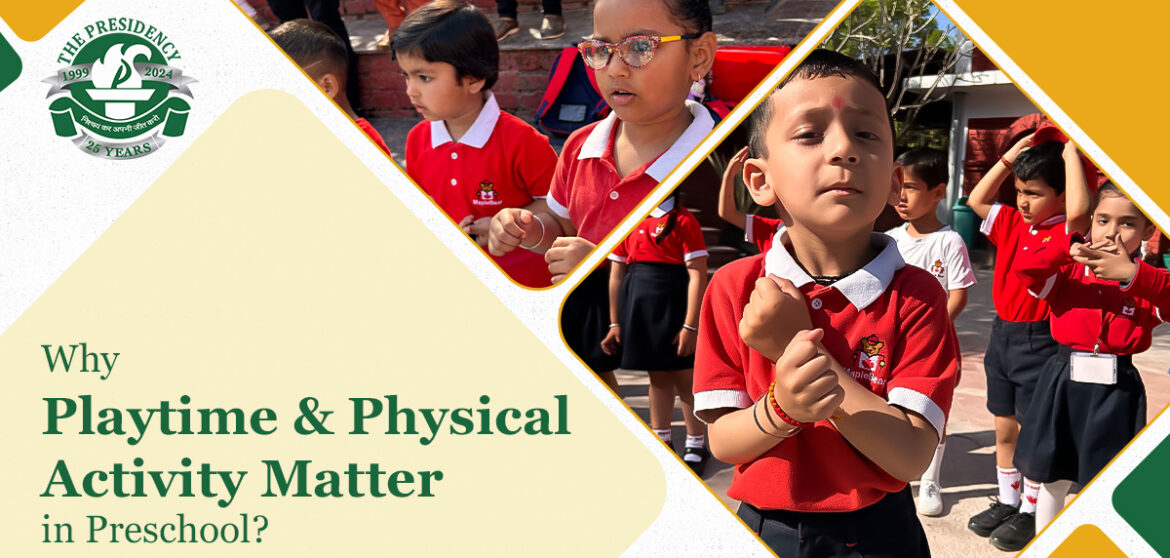Why Do Playtime & Physical Activity Matter in Preschool?
Play Is an Essential Part Of Childhood
Why?
Well because it is through play that children learn, explore & develop important skills.
In early childhood education, playtime & physical activity are not just about fun; they play a crucial role in a child’s overall growth. From improving social skills to building strong bodies, the importance of play in preschool goes beyond just keeping kids engaged—it shapes their future.
To support this statement, here’s why playtime & physical activity matter in preschool:
Helps in Physical Development
Young children are full of energy & they need movement to grow strong & healthy. Running, jumping, climbing & playing outdoor games help improve motor skills, balance & coordination. The preschool playtime benefits include better muscle development, improved posture & overall physical fitness, which sets a strong foundation for a healthy lifestyle.
Supports Brain Development
Physical activities are not just for the body—they also help in brain growth. Simple activities like playing with blocks, puzzles or outdoor games improve problem-solving skills, concentration & creativity.
In early childhood education, movement-based learning helps children understand new concepts better by making learning a fun & interactive experience.
Encourages Creativity & Imagination
Free playtime allows children to use their imagination, whether they are pretending to be superheroes, cooking in a play kitchen or building a castle with blocks. Moreover, the importance of play in preschool is evident in how it encourages curiosity & problem-solving, which are essential skills for lifelong learning.
Improves Social & Emotional Skills
Preschool is a child’s first step into the world outside their home & playtime allows them to interact with their peers, teaching them important social skills like sharing, teamwork & communication. It also helps them express emotions, build confidence & learn how to manage challenges, which is a crucial part of early childhood education.
Reduces Stress & Improves Mood
Physical activity helps release energy & reduce stress, making children happier & more engaged. Active play triggers the release of endorphins, also known as “happy hormones” which help in keeping a positive mood. The preschool playtime benefits also include better sleep & improved attention span in class.
Builds Stronger Learning Abilities
When children engage in physical activities, they develop better focus & listening skills. Studies show that children who are active during preschool have an easier time learning new things. Playtime makes learning enjoyable, helping children develop a love for exploration & discovery.
Final Thoughts
Play is an essential part of a child’s early learning journey. It helps in developing physical strength, mental sharpness, emotional stability & social skills. Without playtime & physical activity, children may miss out on many opportunities to grow & develop essential life skills. That’s why schools focus on integrating fun & movement into early childhood education to ensure that learning is engaging & effective.
At Maple Bear, Bhaniyawala at The Presidency International School, we understand the importance of play in shaping a child’s future. By providing a balanced mix of academics & active play, we help children enjoy learning while growing into confident & happy individuals.


